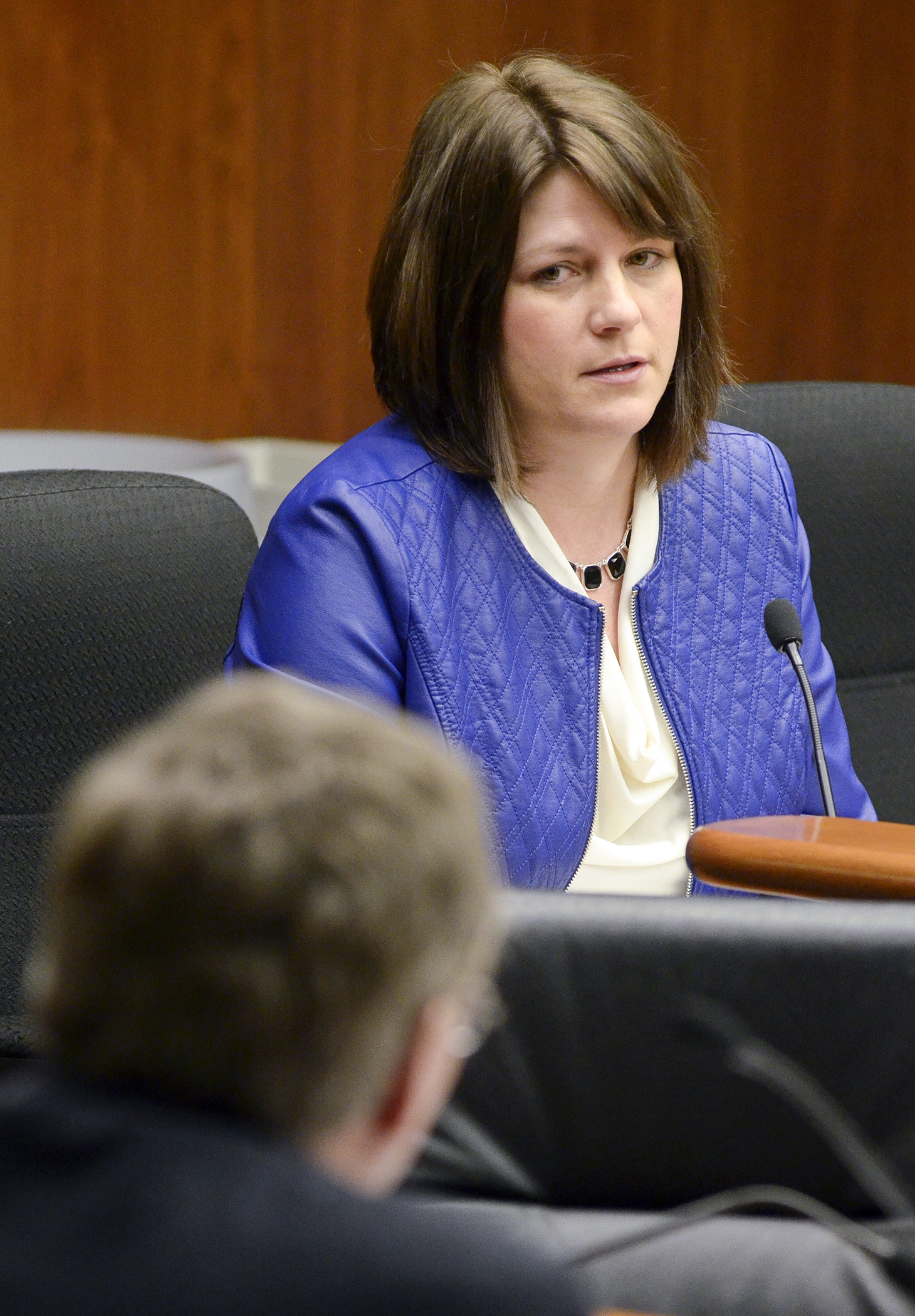Move toward legislative budget office advances in House

A proposal to create a legislative budget office that has bipartisan support and the backing of top House and Senate leaders cleared its first hurdle Wednesday in the House.
Sponsored by House Speaker Kurt Daudt (R-Crown), HF1281 would require the Office of the Legislative Auditor — the Legislature’s independent review arm — to oversee the creation and review of the fiscal impact estimates, called fiscal notes, for proposed legislation.
That would mark a departure from the current practice that sees Minnesota Management & Budget prepare the fiscal estimates lawmakers use to evaluate pending bills.
“It’s a separation of powers so we can work within our own branch to get the information we need to do our work in a timely fashion,” said House Majority Leader Joyce Peppin (R-Rogers), a bill co-sponsor.
Approved by the House Government Operations and Elections Policy Committee by a 13-2 cross-party, roll-call vote, the bill will now travel to the House State Government Finance Committee. Senate Majority Leader Tom Bakk (DFL-Cook) sponsors a companion, SF1304, that awaits action by the Senate State and Local Government Committee.
House Republicans this session have complained publicly about some of the impact estimates, most notably regarding the accuracy of a fiscal note that delayed floor action on a high-profile teacher tenure reform bill late last month.
[MORE: Learn more about fiscal notes]
Daudt has stated previously his bill is not in response to that estimate, but Peppin said lawmakers on both sides of the aisle have complained about MMB fiscal notes for years.
"We should have our own ability to put together our own budget numbers," Peppin said. The bill, she said, would give lawmakers a “better, closer relationship with those preparing our fiscal notes.”
Even under the proposal, however, executive branch agencies like the Agriculture, Education and Transportation departments would still provide their cost estimates related to legislative proposals — the bill would simply change who reviews and approves the notes by passing that responsibility to the legislative auditor rather than the executive branch’s MMB.
Rep. Mike Nelson (DFL-Brooklyn Park) questioned whether the change is necessary and said it would add little value and save little or no money.
“There may be savings over here,” Nelson said, referencing assumed cost savings at MMB. “But there will be costs over here.”
A legislative auditor’s report on fiscal notes cited by State Budget Director Margaret Kelly in testimony on Wednesday found “the system isn’t broken,” she said. Most notes produced and approved under the current system are based on reasonable estimates but often don’t provide enough explanation, the report found.
“Regardless of which branch of government prepares a state’s fiscal notes, expertise and data from affected agencies (primarily in the executive branch) is usually required,” the 2012 report read.
Judy Randall, a program evaluation manager for the legislative auditor’s office, expressed confidence the office could handle the added responsibilities. Whether increased staffing would be needed to handle review of fiscal notes hasn’t been determined, Peppin said.
Related Articles
Search Session Daily
Advanced Search OptionsPriority Dailies
Ways and Means Committee OKs proposed $512 million supplemental budget on party-line vote
By Mike Cook Meeting more needs or fiscal irresponsibility is one way to sum up the differences among the two parties on a supplemental spending package a year after a $72 billion state budg...
Meeting more needs or fiscal irresponsibility is one way to sum up the differences among the two parties on a supplemental spending package a year after a $72 billion state budg...
Minnesota’s projected budget surplus balloons to $3.7 billion, but fiscal pressure still looms
By Rob Hubbard Just as Minnesota has experienced a warmer winter than usual, so has the state’s budget outlook warmed over the past few months.
On Thursday, Minnesota Management and Budget...
Just as Minnesota has experienced a warmer winter than usual, so has the state’s budget outlook warmed over the past few months.
On Thursday, Minnesota Management and Budget...
